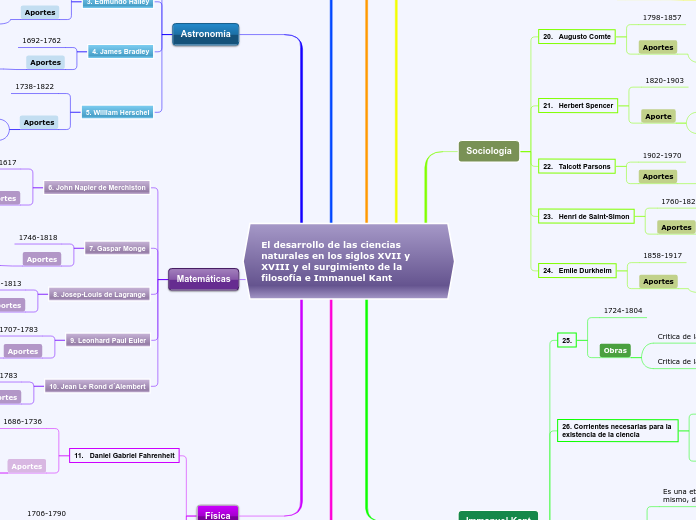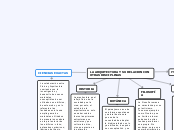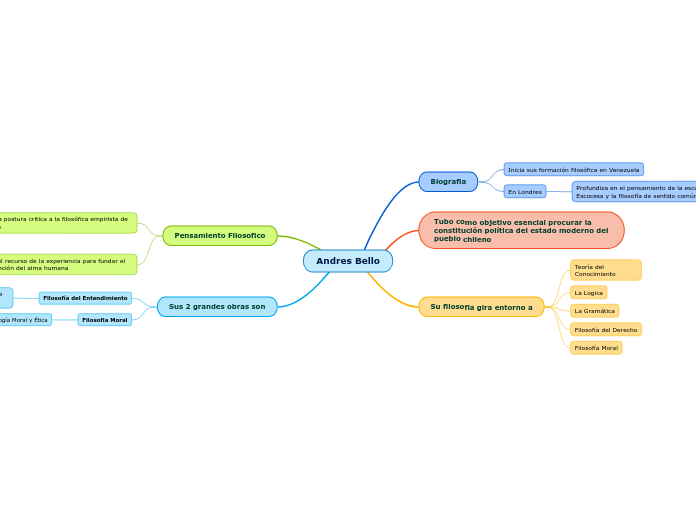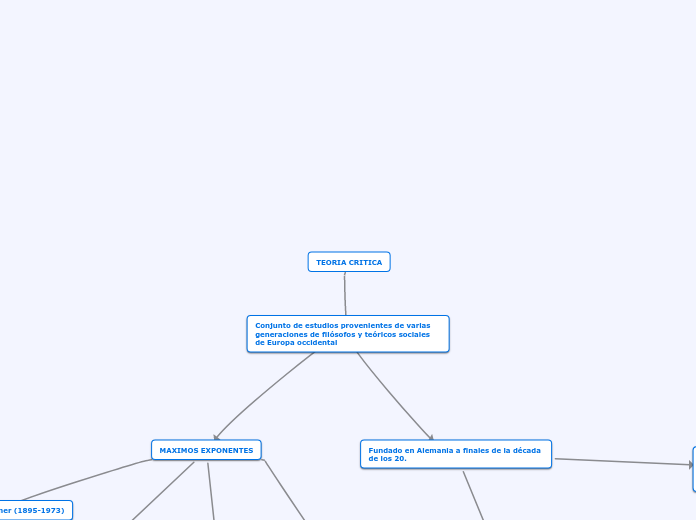El desarrollo de las ciencias naturales en los siglos XVII y XVIII y el surgimiento de la filosofía e Immanuel Kant
The part of speech is a category to which a word is assigned according to its syntactic functions. In English the main parts of speech are noun, pronoun, adjective, determiner, verb, adverb, preposition, conjunction, and interjection.
Química
A conjunction is a word like 'if' 'but' or 'and' which is used to connect sentences or clauses together.
15. Antoine-Laurent de Lavoisier
Subordinating conjunctions are conjunctions that are used at the beginning of subordinate clauses. Some examples of these conjunctions are: although, after, before, because, how, if, once, since, so that, until, unless, when etc.
Estudió la combustión
Descubrió y aislo el oxigeno
1743-1794
14. Robert Boyle
Coordinating conjunctions always connect phrases, words, and clauses. They are: for, and, nor, but, or, yet, so.
Explicó los cambios experimentados por los gases gracias a su constitucion átomica
1627-1691
Física
A preposition is one of the most exciting parts of grammar. A preposition is used to describe the location of something in relation to something else.
13. Alessandro Giuseppe Antonio Anastasio Volta
When a preposition consists of more than one word, it is called double preposition.
Ideó la primera pila electrica
1754-1827
12. Benjamín Franklin
Compound preposition consists of two or more words.
Inventó el pararayos
Distinguió la electricidad positiva y la negativa
1706-1790
11. Daniel Gabriel Fahrenheit
When a preposition consists of one word it is called single or simple preposition.
Desarrolló ( junto a otros cientificos) el termómetro.
Ideó una escala de valoracion para la medicion de la temperatura
1686-1736
Matemáticas
An interjection is used to express emotion in a sentence.
Think of other interjections!
10. Jean Le Rond d´Alembert
Aplicó las matematicas a la dinámica.
1717-1783
9. Leonhard Paul Euler
Perfeccionó el cálculo infinitesimal
1707-1783
8. Josep-Louis de Lagrange
Estudió la metafisica de las funciones
1736-1813
7. Gaspar Monge
Creó la geometría descriptiva
1746-1818
6. John Napier de Merchiston
Hizo comun el uso del punto decimal
Definio los logaritmos
1550-1617
Astronomía
An adverb is used to describe a verb, but it can also describe an adjective or another adverb.
Adverbs normally help paint a fuller picture by describing how something happens.
5. William Herschel
The intensifiers strengthen adverbs adjectives and adverbs and down- toners make them weaker.
Descubrió el planeta Urano
Perfeccionó el telescopio
1738-1822
4. James Bradley
Llego a medir el diámetro de Venus.
1692-1762
3. Edmundo Halley
Descubrió y dió nombre uno de los cometas mas conocidos.
1665-1742
2. Marqués de Leplace
Creo una teoria que precurso la Teoria del Big Bang
1749-1827
1. Isaac Newton
A numeral is a word or phrase that describes a numerical quantity.
Some theories of grammar use the word 'numeral' to refer to cardinal numbers that act as a determiner to specify the quantity of a noun, for example the 'two' in 'two hats'.
Desarrollo del Calculo diferencial e integral.
La teoria corpuscular de la luz
Leyes de la dinámica
Ley de gravitacion Universal.
Leyes de Newton
1643-1727
Filósofo, físico, teólogo,
inventor, alquimista y
matemático.
Immanuel Kant
A pronoun is a word that can be used in place of a noun, typically after the noun itself has already been stated.
28. Postulados que son fundamento
de la ética formal
A reflexive pronoun ends with ...self or ...selves and refers to another noun or pronoun in the sentence (usually the subject of the sentence). The reflexive pronouns are myself, yourself, herself, himself, itself, ourselves, yourselves, and themselves.
Postulado 3
La existencia de Dios
Realizacion efectiva del bien supremo al que aspira la voluntad. dios como ser en el que se identifica ser y deber ser, virtud y felicidad.
Postulado 2
La inmoratlidad del alma
En este mundo es imposible la perfecta conformidad entre voluntad y ley moral, por lo que se postula la inmortalidad del alma.
Postulado 1
La libertad
Esta es una propiedad de la casualidad de los seres racionales que se llama voluntad. De carecer de libertad, la ética seria imposible.
27. La ética Kantiana
Demonstrative pronouns are used to demonstrate (or indicate). This, that, these, and those are all demonstrative pronouns.
Caracteristicas
Autonoma
La voluntad establece la ley moral, la voluntad se da a si misma la ley moral, no le viene impuesta de afuera
Categorica
Los imperativos mandan absolutamente, sin condiciones. El imperativo categorico ser la unica ley moral existente para Kant
A priori
Universal, necesaria e independiente de la experiencia. Valida para todo ser racional
Es una etica formal, pues carece de fines,y por lo mismo, de medios para alcanzar estos fines.
26. Corrientes necesarias para la
existencia de la ciencia
Possessive pronouns are used to show possession. The possessive pronouns are mine, yours, his, hers, ours, and theirs.
Razón
Toda ciencia se apoya en unos contenidos a priori, anteriores a la experiencia, que llama: tracendentales, por ser generales y necesarios, comunes a todo sujeto
Experiencia
Toda ciencia tiene que basarse en datos a posteriori qur partan de la experiencia, que Kant llama condiciones empiricas y quee son particulares de cada sujeto.
25.
The personal pronouns are I, you, he, she, it, we, they. More often than not (but certainly not always), they replace nouns representing people.
Obras
Critica de la razon practica
Analiza el uso de la razon en su funcion practica, como fundamento de la moral
Critica de la Razon pura
Analiza el uso de la razon teorica
1724-1804
Sociología
An adjective is a word that's used to describe a specific noun and to provide more detail to the listener.
24. Emile Durkheim
Publicó Las reglas del metodo sociologico, en 1895
1858-1917
23. Henri de Saint-Simon
Formuló una teoría de la sociedad basada en la influencia de la ciencia en esta
1760-1825
22. Taicott Parsons
Influnyó en el funcionalismo estadounidense
1902-1970
21. Herbert Spencer
Superlative adjectives demonstrate a higher level of comparison between entities.
Aporte
Escribió "El estudio de la sociología"
Comenzó la sociología en el reino Unido
1820-1903
20. Augusto Comte
Expresses a comparison between two entities or groups of entities in quality or degree.
Usó el término "sociología" o "Física social", resaltando su caracter cientifico comparandola con la reina de las ciencias naturales
1798-1857
Medicina
A noun is defined as a person, place, thing or idea. Proper nouns always begin with a capital letter. Common nouns, which are general words, such as 'cars,' are not capitalized.
19. Edwar Jenner
Proper nouns are the names of specific people or places. They should always begin with a capital letter.
Descubre la inmunidad
1749-1823
Naturaleza
A verb is an action word or 'doing' word that signifies movement in some way.
18. Charles Darwin
A modal is a type of auxiliary (helping) verb that is used to express: ability, possibility, permission or obligation. The main modal verbs in the English language are: can, could, may, might, must, shall, should, will, would.
Dio pie a la teoría biológica con mas alcance global: la evolución
1809-1882
17. Georges Louis Leclerc, conde de Buffon
A linking verb connects the subject with a word that gives information about the subject, such as a condition or relationship.
Hizo largas observaciones de la vida y la clasificacion de plantas hasta reunir en 44 volumenes un trtado ilustrado, llamado Historia Natural
1707-1788
16. Karl von Linneo
A verb with its own meaning: a verb that is not an auxiliary verb.
Aportes
Aportó una sistematizacion y ordenadión de una serie de conocimientos inconexos
1707-1778









